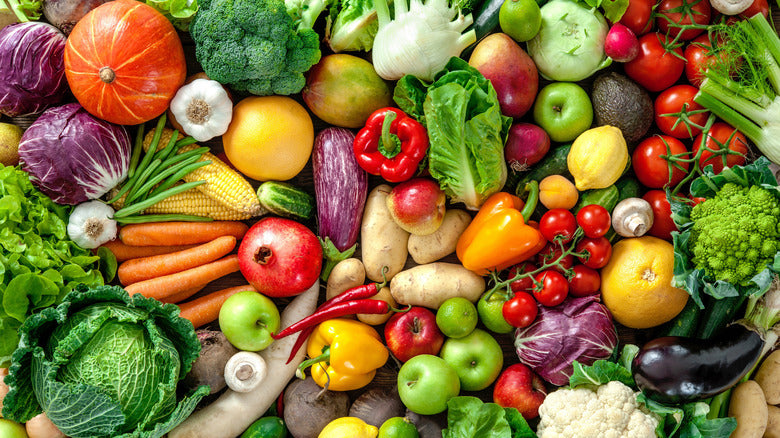In today's market, the words "organic" and "natural" are often used interchangeably, yet they represent very different concepts and standards. This article dives into what each term means, how they differ, and what you, as a consumer, should know to make informed decisions.
1. Introduction to Organic Products
Organic products have surged in popularity over the past few years. They are generally defined as items produced under a set of environmentally and animal-friendly farming practices. Unlike conventional methods, organic farming minimizes synthetic inputs like pesticides and fertilizers, aiming for sustainability and ecological balance.
2. Understanding Natural Products
Natural products, on the other hand, are often perceived as items that are minimally processed and free from artificial ingredients, colors, or preservatives. The term "natural" suggests a product is closer to its original state. However, unlike "organic," the definition and standards for what constitutes a "natural" product can be vague and less regulated.
3. The Distinction between Organic and Natural
The key difference lies in certification and ingredients. Organic products undergo a strict certification process to ensure they meet national standards for organic farming and processing. Natural products, while potentially less processed, do not require such certification, leading to a broader, more subjective interpretation of their purity and sourcing.
4. The Certification Process for Organic Products
To be labeled organic, products must adhere to specific standards set by national and international bodies. This includes using organic seeds, avoiding synthetic pesticides and fertilizers, and employing practices that support ecological balance. Certification involves rigorous inspections and documentation to verify compliance.
5. The Misconceptions of Organic and Natural Labels
Marketing tactics often blur the lines between organic and natural products, leading consumers to believe they are synonymous. The reality is that the term "natural" is not as heavily regulated as "organic," making it susceptible to misuse and leading to confusion over product authenticity.
6. The Importance of Reading Labels
Understanding labels is crucial for identifying authentic organic products. Labels such as "100% Organic," "Organic," or "Made with Organic Ingredients" indicate different levels of organic content, governed by strict regulations. Natural labels, however, lack such clear standards, emphasizing the need for consumer vigilance.
7. The Impact of Organic Farming on the Environment
Organic farming is often praised for its positive impact on environmental sustainability and biodiversity. By avoiding synthetic chemicals and employing crop rotation and biological pest control, organic practices enhance soil health and reduce pollution, contributing to a healthier planet.
8. The Health Implications of Organic vs. Natural Products
Choosing organic products can reduce exposure to harmful pesticides and chemicals. While natural products may also minimize such risks, the lack of regulation means there's less assurance about chemical exposure. Nutritional differences, however, are still a topic of ongoing research.
9. The Cost Difference between Organic and Natural Products
Organic products often come with a higher price tag due to the costly certification process and more labor-intensive farming practices. Natural products, while potentially cheaper, do not guarantee the same level of scrutiny or environmental and health benefits.
10. How to Make Informed Choices about Organic and Natural Products
To navigate the market wisely, research and educate yourself about certification standards and labels. Look for products certified by reputable organizations and be wary of vague natural claims without substantial backing.
11. Organic Products in the Global Market
The demand for organic products is on the rise globally, driven by increasing consumer awareness about health and environmental issues. This trend is reshaping the market, with more companies striving to offer certified organic options.
12. The Role of Government Regulations in Organic Products
Government regulations play a crucial role in ensuring the integrity of organic products. Laws and enforcement mechanisms are designed to protect consumers from misleading claims and to maintain trust in the organic label.
13. The Future of Organic and Natural Products
As consumer awareness and demand for sustainable, health-conscious products grow, the future looks promising for the organic sector. Innovations in organic farming and processing are likely to enhance accessibility and affordability, encouraging more consumers to choose organic.
14. Conclusion
While the terms organic and natural may seem similar, they represent different standards and practices. Understanding these differences is key to making informed choices that align with your health and environmental values. As the market evolves, staying educated on these topics will enable you to navigate the complexities of organic and natural labeling with confidence.
15. FAQs
-
Is "100% natural" the same as "100% organic"? No, "100% natural" focuses on the absence of artificial additives, while "100% organic" indicates compliance with strict farming and processing standards.
-
Can a product be labeled as organic without certification? Generally, no. Most countries require organic products to be certified by accredited organizations to carry an organic label.
-
Are organic foods always healthier? Organic foods reduce exposure to pesticides and chemicals, but nutritional differences between organic and conventional foods are still under research.
-
Why are organic products more expensive? Organic farming practices are more labor-intensive and the certification process adds to the cost, making organic products pricier than their conventional counterparts.
-
How can I verify the authenticity of organic products? Look for certification labels from recognized organizations and check the product's details against the certifier's database if available.
